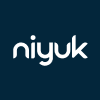AI in Assessment: Top 10 Tools Worth Exploring
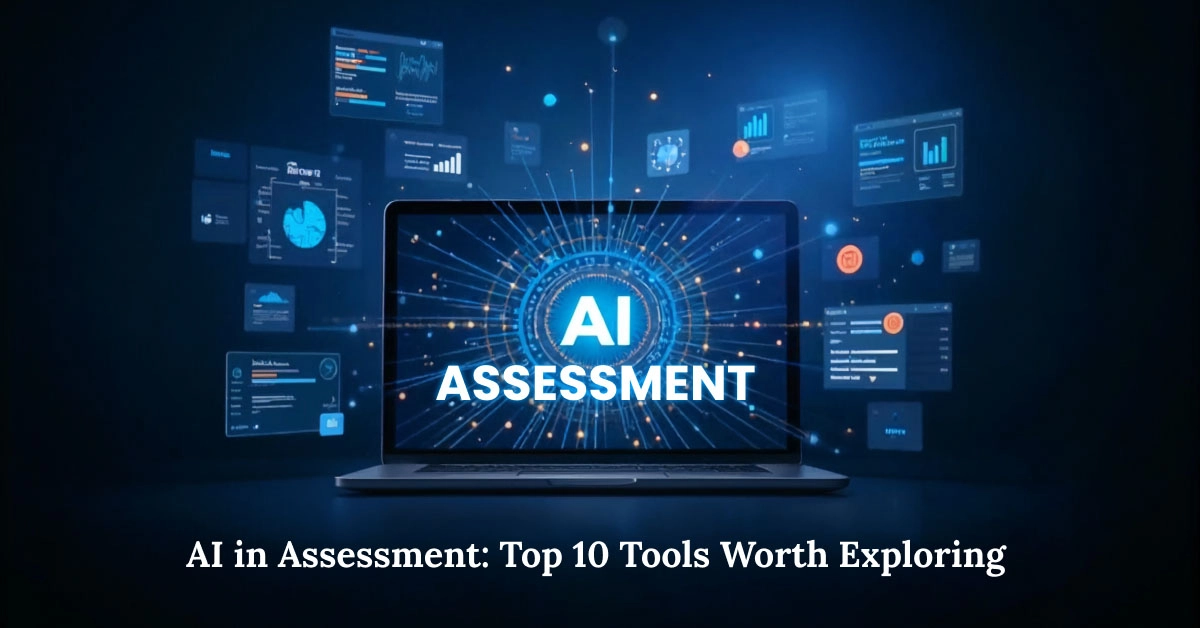
AI assessment influences teacher’s evaluations of student’s performance and facilitates adjustment to various learning preferences. Teachers can use AI tools to give precise assessments and thorough feedback to students when implementing standards-based grading assisting them in concentrating on raising their performance. This article lists the top ten AI tools that can help teachers take full advantage of these advancements and provide more individualized instruction.
Niyuk is a useful tool (an AI recruiter platform) that can assist you in reaching your assessment objective such as those pertaining to standards-based grading using an AI writing assistant.
What is AI in Assessment?
AI in assessment gives numerous applications or uses. Let us discuss them here one by one.
1. Adaptive Assessments
By facilitating the creation of adaptive assessments artificial intelligence (AI) in professional and educational evaluations has completely changed the way tests are administered. Dynamic tests revising question difficulty as per the test-taker performance are known as adaptive assessments.
Adaptive tests driven by AI can unveil a student’s strength areas and weaknesses and give a more accurate assessment of their proficiency.
2. Customized Challenge
Each learner is suitably challenged thanks to these assessments individualized approach.
3. Automatic Grading
Automated grading systems are examples of critical use of AI in assessments. Responses like these can be assessed by these systems.
- Multiple-choice inquiries.
- Writing essays.
- Tasks involving problem-solving.
AI is capable of the following through the use of machine learning algorithms and natural language processing (NLP).
- Evaluate the calibre of the written answers
- Give out scores
- Constructive review
This guarantees fair and addition to lessening the workload for teachers.
4. Tailored Feedback
Based on how well students perform on assessments AI can give them tailored feedback. AI systems can provide focused feedback and pinpoint areas for improvement by examining a student’s answers. With this prompt or instant feedback, students may find their errors and do rapid progress. In professional settings personalized feedback can guide employee’s professional development and training by helping them identify:
- Skill Shortages.
- Areas that Require Improvement.
Stop Getting Overwhelmed by Applications
Initialize an AI powered solution to automate and elevate your hiring process
Data Insights and Data Analysis
Large amounts of assessment data can be analysed by AI to reveal important patterns in performance and learning. This implies the following in educational contexts. being aware of the performance of various student demographics on tests. Recognizing typical misconceptions. adjusting instruction accordingly. Businesses can use AI in professional contexts to: Analyse data pertaining to employee performance. Find employees with high potential. Create training plans that are specifically targeted.
1. Increased Accessibility
Test accessibility for individuals with disabilities can be enhanced by AI. Voice recognition and text-to-speech kind of AI driven solutions offer many ways to give tests and assessments for students with Physical disabilities. These resources will make sure that all students will have the same access to appear for assessments and grab opportunities to present their talent and abilities.
2. Identifying and Stopping Dishonest Behaviour
The integrity of assessments must be preserved because AI can be very useful in detecting and preventing cheating. Proctoring tools with AI capabilities can:
- Use webcams to watch test-takers.
- Check for any cheating signals.
- Report of any suspicious activity is a must.
Artificial intelligence helps to create a fair testing environment by spotting anomalies like strange eye movements or keystroke patterns.
3. Credentialing and Professional Evaluations
Developing and delivering tests for professional credentialing can benefit greatly from artificial intelligence. as well as authorization. AI-powered tests are easy enough to measure the abilities and proficiencies required for various job positions. To help employers to make well-informed hiring decisions, AI may offer complete reports on candidate performance. AI can create tests that imitate actual work duties offering employers a more perfect idea of a candidate’s aptitude.
Loops for feedback and ongoing improvement.
By regularly learning and developing from the data collected, AI systems can make more accurate assessments.
4. Improved Education
AI-driven tests feedback can be used by educators and employers to boost professional development initiatives and teaching strategies.
This ongoing feedback loop makes sure that evaluation procedures shift and conform to industry and educational norms.
Conduct consistent, objective interviews at scale.
Our AI powered interview solution evaluates candidates on the most critical skills.
Reasons for Using Ai in Assessment
To make personalised learning paths AI-powered assessment tools can assess each student’s performance and learning choices.
1. Individualized Education
With feedback and suggestions that are specific to each student’s strengths and shortcomings these tools are adaptive. Learning is made more efficient and interesting by this degree of personalization which guarantees that students get the help they require to grasp concepts.
2. Fast Response
The learning process is hampered by traditional assessments which frequently postpone the test and the feedback. Instant feedback from AI-driven tests enables students to recognize their errors and quickly understand the right ideas. The accumulation of knowledge gaps is avoided, and learning is reinforced by this instantaneous correction.
3. Effective Grading and Less Work for Teachers
For teachers grading assignments can take a lot of time particularly in large classes. Artificial intelligence (AI) can help with subjective evaluations like essays and even automate the grading process for objective exams. In addition to ensuring consistency and fairness in scoring this automation expedites the grading process. Teachers may incur less time on administrative tasks and more time training.
4. Enhanced Data Analysis
AI tools analyse massive volumes of data. It is useful to find trends & patterns in student performance. With this type of analysis, teachers can understand the efficacy of their curriculum and teaching techniques. By getting common areas in which students struggle and offer extra resources to address these issues, educators can improve their teaching methods.
5. Adaptive Testing
Adaptive testing is a major benefit of AI in assessments. Based on the students answers these tests modify their level of difficulty to give a more accurate assessment of the student’s aptitude. Advanced students can be suitably challenged by adaptive testing which also allows struggling students to show off their knowledge without feeling overburdened.
6. Lowering Bias
By concentrating only on performance data and ignoring irrelevant variables like the students’ background AI can assist in reducing assessment bias.
- Background
- Gender
- Race
All students are evaluated according to their knowledge and abilities thanks to this objectivity which fosters a more equal learning environment.
7. Early Support and Intervention
Early detection of difficulties in learning is made possible by AI’s capacity. It continuously monitors student performance. Teachers can identify what extra support and intervention is required to those students’ facing issues, before they become tougher with the help of AI-driven insights.
Early resolution attempts can remarkably improve student end results by addressing problems on their arrival.
8. Future Skill Development
Students are best prepared for the future as technology and artificial intelligence will be important in many industries by incorporating AI into assessments.
Getting successful in the ultramodern workforce needs both- digital literacy and flexibility. By well verse themselves with AI tools and assessments, students can develop these abilities.
Criteria for Assessing AI Assessment Tools
1. Dependability and Accuracy
Accuracy check and dependability of an AI assessment tool is a vital consideration. These tools ought to reliably and correctly produce results in a variety of situations.
2. Evaluation Precision
Accuracy ensures that results accurately reflect the user’s performance or knowledge by reflecting the precision of AI-generated assessments and feedback.
3. Dependable Outcomes
Reliability is tool’s capability to consistently deliver accurate results upon multiple attempts. Look for AI tools that have been thoroughly tested and validated by reputable research or user reviews.
4. User-Friendliness
The user experience is critical to the adoption and successful use of AI assessment tools. The interface is easy to use and intuitive for both- educators and learners. Users may become frustrated and less productive when faced with tougher or more challenging systems for usage.
The following are some key elements of usability.
- Unambiguous directions.
- Setup
- Configuration
- Straightforward integration with existing systems
A gentle user experience raises the benefits of the tool and enhances regular use.
5. Personalization and Adaptability
Each organization or educational institution has different needs for the assessments.
Therefore, a high degree of customization and flexibility should be provided by an efficient AI assessment tool.
This includes:
- Adjusting evaluations to meet learning goals.
- Altering the questions degree of difficulty.
- Modifying feedback according to the needs of each learner.
Additionally, there is flexibility in the kinds of assessments that are accepted.
- Several-choice Inquiries
- Essays
- Realistic Assignments
- Peer Evaluations
Try Advanced Tools with Reasonable Payment Plans.
Get started with a Niyuk payment plan today.
Scalability
Scalability makes sure the AI evaluation tool can expand to meet your needs. The tool should be able to accommodate higher user counts or a wider range of assessments without experiencing any performance issues.
1. Scalability of the System
When implementing a tool across several departments or locations large educational institutions or organizations must have scalable solutions. Checking for how well the tool works under various loads and how well it integrates modules or new features is necessary.
2. Data and Privacy Security
Data security and privacy are now crucial due to the growing use of AI tools. In addition to making sure that sensitive data is handled securely the AI evaluation tool must abide by pertinent data protection laws like FERPA or GDPR.
This Comprises:
- Using Strong Encryption Techniques
- Safe Storage of Data
- Clear Use of Data
- Policies for Sharing
Assessors ought to confirm the vendors data security procedures as well as any certifications or third-party audits they have obtained.
3. Reporting and Feedback
Good AI evaluation tools offer thorough reporting and feedback features. The tool should provide thorough performance insights for learners emphasizing both their areas of strength and growth. Predictive analytics are another feature of advanced tools that help identify learners who are at risk and recommend interventions. To enable educators or administrators to create reports that are in line with their assessment goals and stakeholders needs reporting features ought to be adaptable to their needs.
5. Connectivity with Current Systems
An additional important consideration is the ability to integrate easily with current organizational or educational technologies.
The AI evaluation tool ought to work with:
- Systems for Managing Learning (LMS)
- Information Systems for Students (SIS)
- Appropriate Platforms
6. Smooth Integration
Smooth data flow between systems is made possible by integration capabilities which also lessen administrative load and provide a comprehensive picture of student progress.
7. API Accessibility
Both pre-built integrations and the availability of APIs for custom integrations should be examined by evaluators.
8. Price and Worth
The cost of AI assessment tools is an important factor to consider. Finding a solution that works within the budget is crucial, but the tools value should also be highlighted.
This comprises:
- Immediate advantages and long-term financial gains because of better learning results
- Increased effectiveness
- Increased user contentment
The entire cost of ownership should be considered by evaluators which includes:
- Fees for licenses
- Implementation expenses
- Instruction
- Continued assistance
- Compare these with the anticipated advantages
Ai in Assessment: Top 10 Tools worth Exploring
1. Niyuk: Your AI Hiring Companion
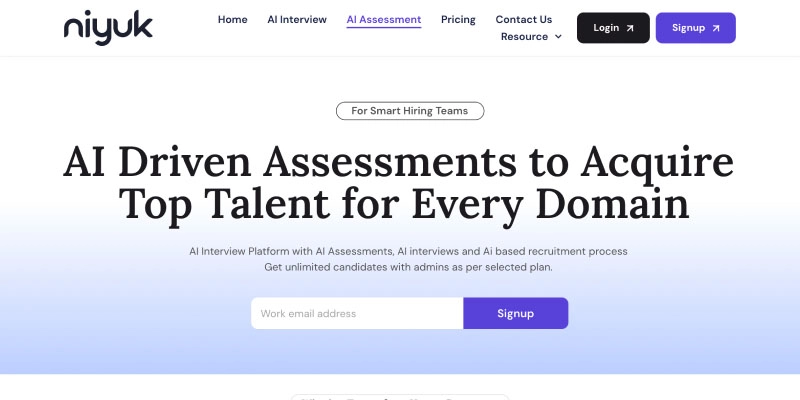
Niyuk is an intelligent AI evaluation tool that is revolutionizing the hiring process for businesses. It assists you in examining a candidate’s abilities and potential beyond what is on their resume. The platform provides you with an objective clear picture of the person you are considering by using AI to evaluate their skills. This implies that you can make better hiring choices based on data rather than gut instinct alone. The goal is to speed up and greatly improve the initial screening procedure.
Niyuk is fantastic because it makes the entire experience seem more natural to all parties. It provides a variety of assessments including personality tests and practical tasks all of which are AI-powered to guarantee equity. Both recruiters and job seekers will find the platform easy to use which facilitates a seamless and effective process. Your team not only saves time, but candidates also have a better experience and feel more assured that their abilities are being fairly assessed.
2. Coursera Assessment Platform
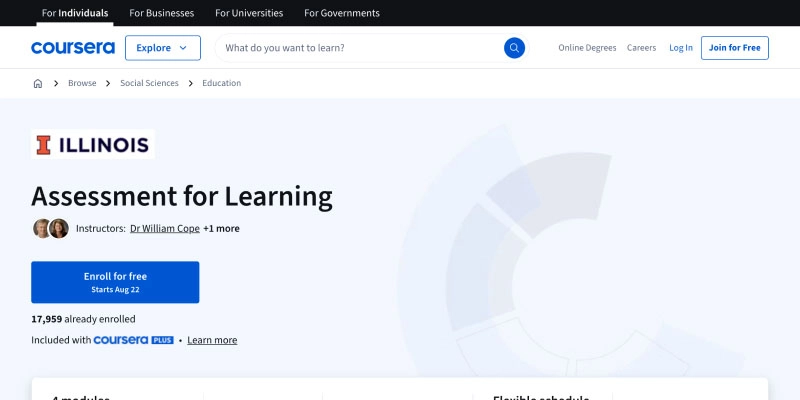
Assessment Platform is an important part of Coursera’s online learning environment. It makes use of AI to provide peer reviews and automated evaluations. Quality on a massive scale. This platform is unique because it enables for extensive online learning while saving the integrity and calibre of tests. The AI-powered peer feedback system inspires participation and critical thinking by allowing students to assess one another’s work using earlier set standards.
3. ProctorU

It is a top remote proctoring service that uses artificial intelligence (AI) to preserve the integrity of online tests. ProctorU maintains a safe and equitable testing environment by employing AI-powered monitoring tools to identify and stop cheating in real-time. By watching test-takers webcams the system looks for any indications of academic dishonesty in their behaviour.
4. Cognii
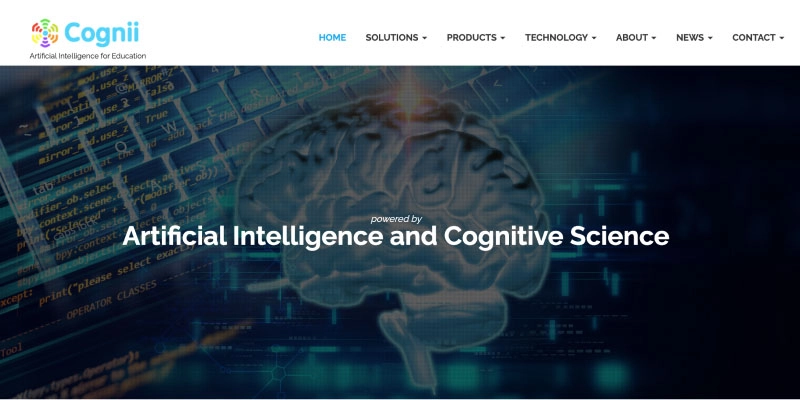
Cognii integrates AI-powered virtual learning assistants into the classroom to improve assessments. These virtual assistants communicate with students via natural language processing (NLP) offering tailored assistance and feedback throughout formative evaluations. To provide individualized guidance and enhance learning outcomes Cognii can mimic a human tutor by comprehending and reacting to student input.
5. ExamSoft
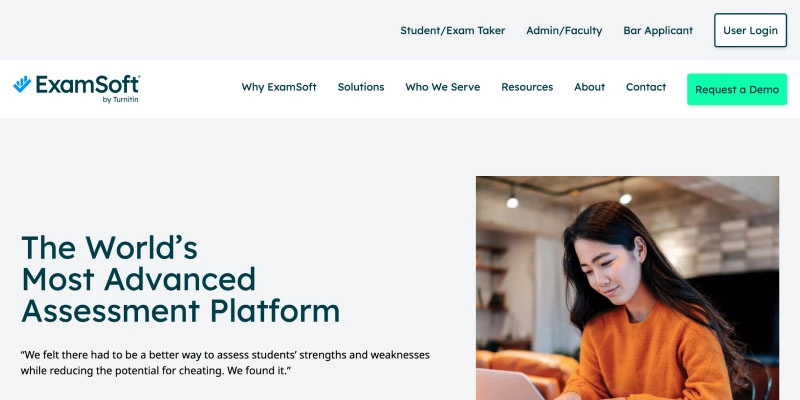
ExamSoft is a comprehensive exam management system offering sophisticated assessment analytics with safe delivery. Secure Testing. With a high level of control and security the platform enables teachers to design administer and grade tests. ExamSoft offers a dependable testing environment by protecting assessments from cheating and unauthorized access through its secure exam delivery system.
6. Knewton Alta Number
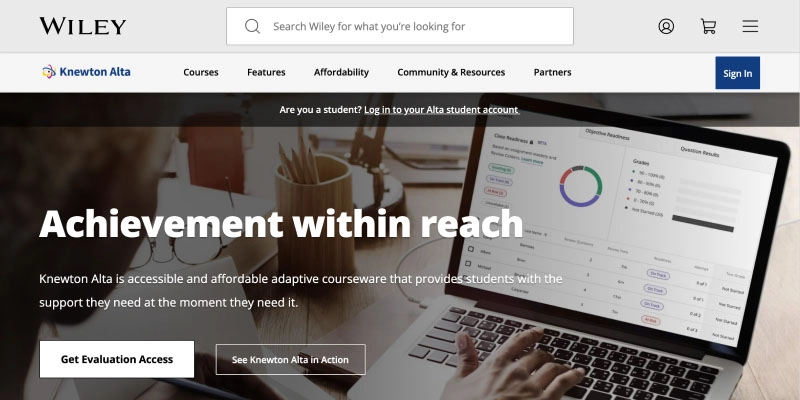
Knewton Alta is an AI-powered adaptive learning platform that gives students immediate feedback and customized tests.
7. Turnitin
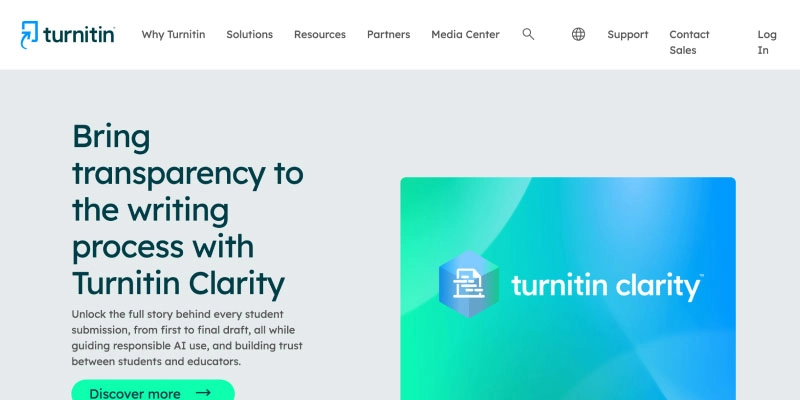
Turnitin is one of the best resources for plagiarism detection and confirming its integrity is Turnitin. It is frequently used in educational institutions to guarantee that student work is original.
The platform detects possible plagiarism and provides thorough originality reports by comparing submitted papers to a large academic content database using AI-powered algorithms.
8. Quillionz
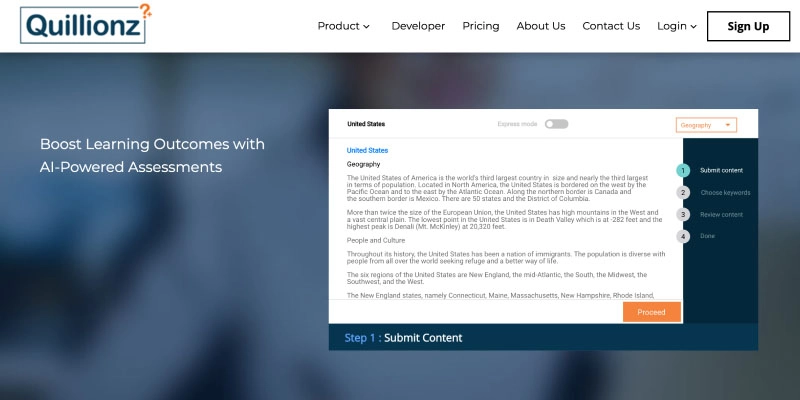
An AI-powered tool called Quillionz was created to automatically create assessment questions from instructional materials. The platform analyses text using natural language processing (NLP) to generate a variety of questions such as them.
- Several-choice
- True or false
- Questions with short answers
- Simplified Evaluation
Teachers can concentrate on teaching and student support because this automation saves them time and effort when creating assessments.
9. TalentLMS
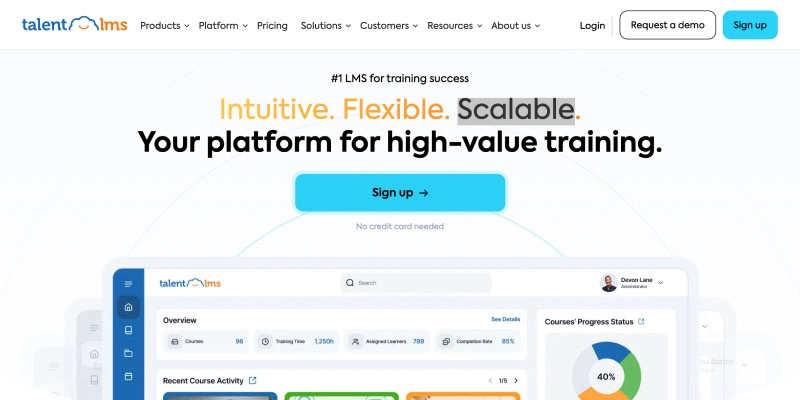
With powerful assessment tools to monitor: TalentLMS is a comprehensive learning management system (LMS).
It Tracks:
- Learner Progress
- Performance
10. Questionmark
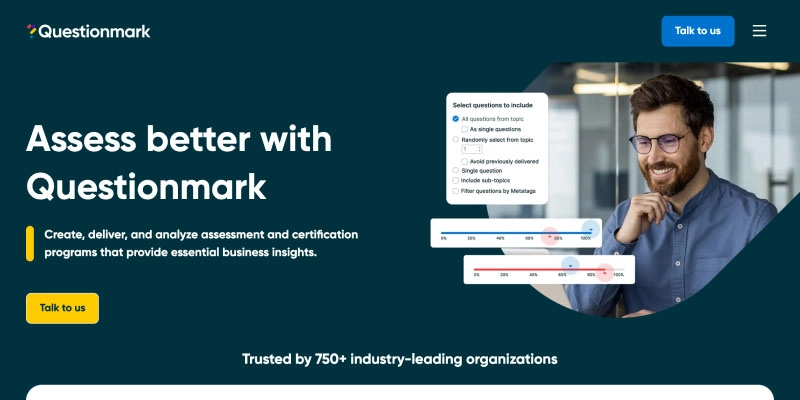
A comprehensive platform for assessments Questionmark provides scalable and secure solutions for developing distributing and reporting on tests.
Assessments Driven by AI.
The platforms AI-enhanced features support various assessment types including:
- Test Questions
- Exams
- Surveys
By preventing cheating and illegal access Questionmark’s secure delivery system guarantees the integrity of tests.
Conclusion
The reasons why Niyuk is unique in the field of AI assessment. Niyuk provides a comprehensive end-to-end hiring experience while the blog highlights some great tools like Turnitin for plagiarism and Coursera Assessment Platform for particular use cases. While many of these tools are excellent at one thing such as proctoring essay grading or adaptive learning they frequently serve as a single component of a much more intricate and large-scale puzzle.
On the other hand, Niyuk is revolutionary since it is designed especially for the hiring process and offers a complete solution that goes well beyond a single utility. Niyuk offers you with a complete picture by checking a candidate’s entire profile including their personality traits, technical and cognitive abilities. Everything is simplified on a single user-friendly platform from preliminary screening to comprehensive analytics.
Niyuk isn’t just another tool-it’s the answer for a hiring process that is genuinely innovative and effective.
Contact now via email to Niyuk team at: info@niyuk.ai
Frequently Asked Questions
1. What is an AI-based evaluation?
Candidates for a job or course are assessed using artificial intelligence in AI-based assessments. Unlike conventional methods, it offers a more objective & data-driven assessment by assessing factors like an individual’s skills, cognitive abilities and personality. It makes us free from human biases to take better decisions.
2. Can hiring bias be lessened by AI evaluations?
Indeed, hiring bias can be considerably reduced by AI tests. They concentrate on a candidate’s skills and credentials rather than personal characteristics like gender age or background by analysing candidate data using standardized algorithms. A more diverse and competent workforce results from this levelling the playing field for all.
3. Which industries stand to gain the most from AI evaluation tools?
AI assessment tools are beneficial to many industries particularly those that hire a lot of people or need highly specialized skills. This covers the fields of education healthcare finance and technology. These tools enable them to swiftly identify the top candidates while guaranteeing an equitable and effective hiring procedure for each candidate.
